REDUCING SEASONAL ALLERGIES IN Atlanta
Despite it’s simple for some of us to enjoy the warm season, there are many people that are afflicted with periodic allergies. Did you know that grass and the plants that increase in turf are some of the greatest contributors to allergies?
According to the American Academy of Allergy Asthma & Immunology, allergic reactions to turfs are very common. Grass allergies might show in a variety of forms, including nasal symptoms (runny nose, stuffiness, sneezing, asthma, and eye symptoms (irritating, watery/red eyes). A lot of persons may furthermore have skin itchiness (hives or skin welts) after exposure to turfs, though this is considerably less usual. Grass allergies are prevalent since turf pollen disseminates in the wind, which is different from pollen that carried by bugs, so you are sure to breathe it in and consequently cause symptoms. In the majority of areas of America, including Atlanta, grass usually pollinates in the late spring season (April through early June).
If you’re part of the multitudes troubled by seasonal allergies, synthetic grass will help alleviate some of your symptoms without the use of medicines. Dip in to find more.
DOES SYNTHETIC TURF ELIMINATE ALLERGIES?
Well, it depends. Not every person is allergic to just turf. Some are allergic to the pollen that trees and herbs propagate, too. The main common allergy to grass is denominated hay fever. If you’ve become ill with hay fever in the past, you know just how wretched it can be. It might be difficult to avert grass allergens entirely, however you will certainly reduce your exposure by removing the natural turf on your house.
When you transform your natural turf garden to synthetic turf, the pollen count will be notably reduced. While there can yet be pollen in the proximity from trees and plants, turf pollen production will be removed in your nearest area.
WILL SYNTHETIC TURF HELP MY DOG’S ALLERGIES?
Does your dog suffer from allergies, too? It’s becoming more usual for dogs to suffer from pollen allergies in these times. They will develop the same symptoms you may feel, like sternutation and watery eyes. Allergy medicines can turn your dog disorientated, so they won’t act congruent as the pollen count is considerable.
It’s a frequent misunderstanding that you can’t acquire artificial grass if you possess dogs. Yet, we’re here to demonstrate to you that isn’t true! If you have pets, you can get pet-specific turf that is made only for your pet. Artificial turf for dogs will bring you the best performance for high traffic areas and is manufactured with a singular backing system so secretions can flow through rapidly. Solid waste is a breeze to do, also — only let it solidify before getting rid of it and scatter with a nozzle for whatever that might fall behind.
WHAT ADDITIONAL UPSIDES ARE THERE TO SYNTHETIC GRASS?
Low Maintenance: Artificial grass doesn’t require even a near part of care that conventional turf does. You won’t have to remove, lower, fertilize, or hose. This facilitates to stop allergies and other inhaling complications in their course being that there’s no ground dust or floating contaminants from the turf itself.
Durable: When you acquire quality synthetic turf, you can count on it to be durable. At Southwest Greens, we develop our grass with the most cutting-edge materials available. It’s UV-resistant and created to deal with heavy use, extreme weather, and temperature fluctuations. So whether it’s spring, summer, fall, or winter, your grass will always be green and well-kept.
Saves Water: With water scarcity turning continuously more a significant trouble for arid zones, synthetic turf is a great alternative to reduce your water usage. Did you know that nearly ⅓ of all housing water use (which totals among 9 billion gallons everyday) is used for landscape watering? So if you’re tired of watering your lawn and paying high quotes to do it, artificial grass is the perfect product.
Reduces Pollution: Synthetic turf doesn’t need the same harsh substances that conventional grass needs to reach its green. Therefore, it gets rid of the use of herbicides and pesticides, which signifies you and your nearest and dearest (pets included) won’t be exposed to as many contaminating components. Furthermore, you won’t have to worry about those substances going through water systems through heavy rains.
DOES ARTIFICIAL GRASS GET HOT?
It’sa typical belief that synthetic grass can get warm, particularly in the summer when the sun is beaming all day. That’s why we’ve created HydroChill®. This innovative technology is inserted in the turf infill to provide a decent temperature reduction of 30°-50°. It acts comparably to how sweating cools us. HydroChill® holds humidity from precipitations or a quick shower from the hose to use the effects of evaporation to remove|warmth naturally.
This technology gives most advantage when the sun is nearest the Earth, as shown in the solar radiation timeline. The rotation of the Earth is additionally responsible for hourly variations in sunlight, therefore making HydroChill® more effective amidst warmer quota of a clear day when most required.
